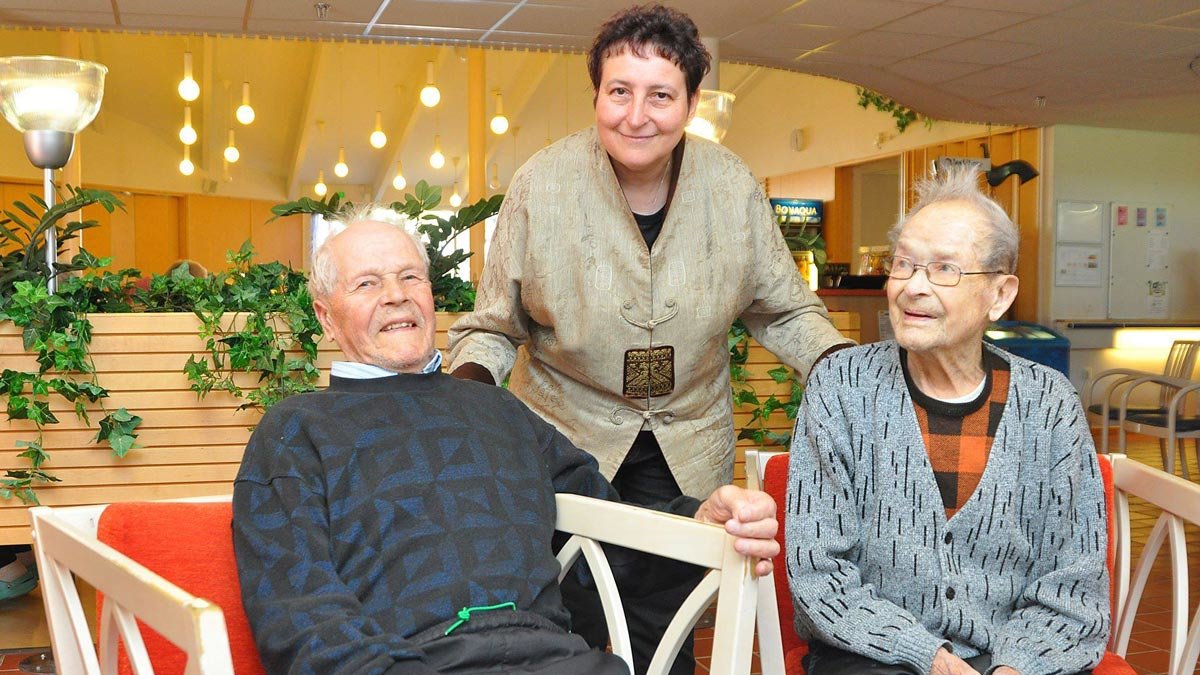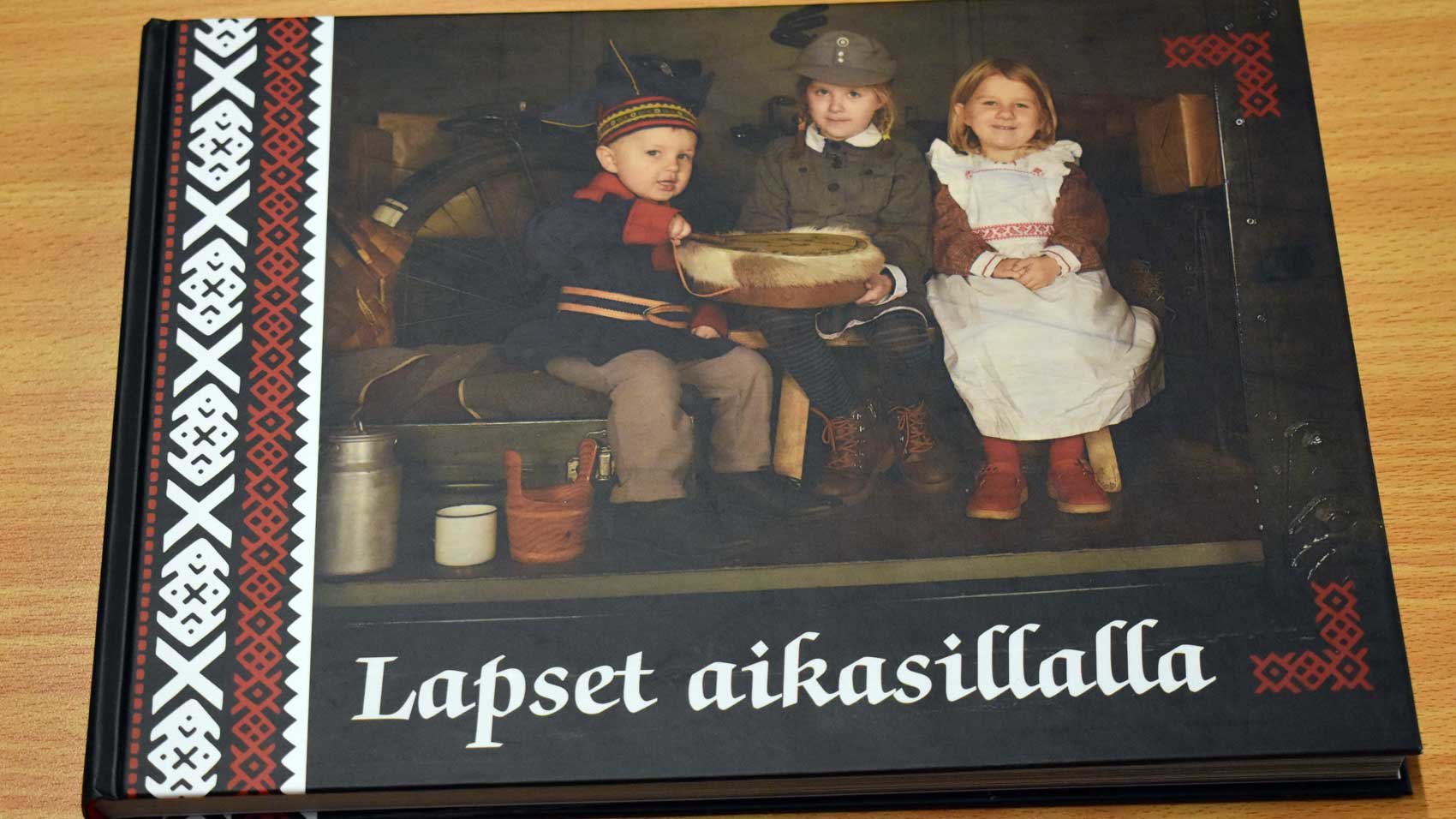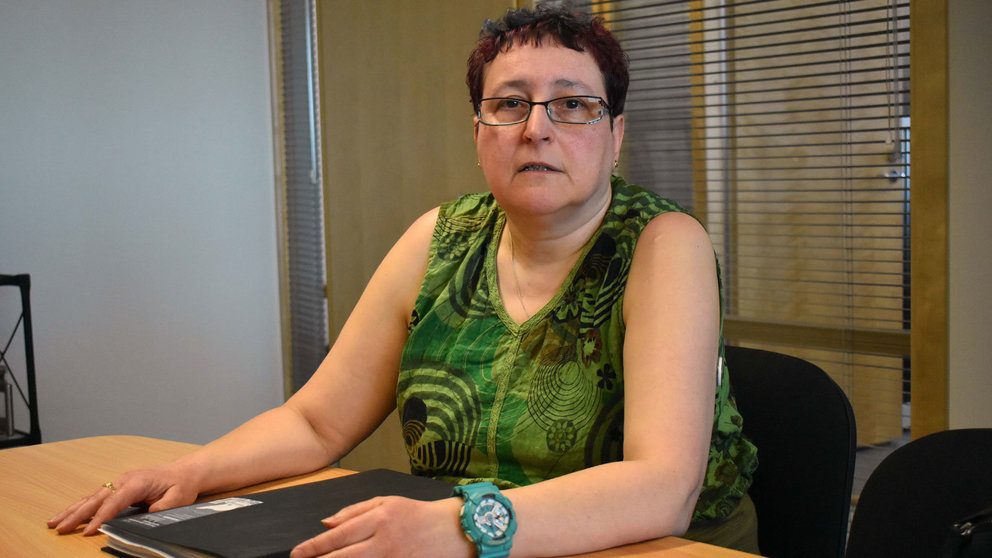Carmen Tomás Martínez (Spain, 1964) is probably one of the most veteran and respected members of the community of people of foreign origin in Finland. Maybe it is because she immigrated already in the mid-1980s, or because she speaks Finnish perfectly and has been a Finnish citizen for years. The fact is that she is one of those people to whom newcomers turn when they need to learn about the country and who is ready to give advise, mainly via social media.
Her knowledge of the country is deep. She has studied in Finnish high educational institutions and she has even written a book in Finnish about the war times, when many Finnish children became also refugees.
Carmen has seen both sides of Finland: for many years she was within Nokia's bubble, living the best of Finland's dream. That was until the company's decline started and she was fired. Now, like so many others, she struggles to find a job and feels that the job market rejects her.
-QUESTION: How did you come to Finland?
-ANSWER: Since I was very young I was interested in Finland and I was learning the Finnish Eurovision songs, even though Finland was not very successful then (smiles). I intuitively knew I would come here. Then, one summer day in 1982 when I was with my parents on the beach in Alicante (Spain) I met a Finnish boy. We fell in love and after two years of a distance relationship I applied for a study place in Finland and I moved here to study at the University of Tampere.

Carmen, with two of the Finns she interviewed when she wrote her book. Photo by Sauli Kaipainen.
-Q: What did you study?
-A: The same I was studying in Spain, German Philology. For me, at that time started a situation that has been repeating all the time: when you move to another country you have to be prepared to do an effort twice as big as if you stayed in your own. So, I was studying, I also had to work to support myself in Finland (I was teaching Spanish and German at evening schools) and at the same time I was studying in Spain, so in April after I had done all the exams in Finland I went to Spain to do the exams of the entire academic year til the end of July. It was quite an effort, but it was worth.
-Q: Did you graduate in Finland?
-A: No, I graduated first in Spain in German Philology at the University of Salamanca. I intended to graduate also in Finland, but then Finland joined the European Union and I thought that my Spanish degree would be valid here as well. I got a job at Nokia and then because of work I had to interrupt my studies in Finland. For one year I could resist working and studying at the same time, but then I faced difficulties and as Finland had entered the EU I decided to stop. That was a huge error, because later it turned out that my studies were not accepted directly without going through a recognition process with the Ministry of Education.
When you move to another country you have to do an effort twice as big as if you stayed in your own
-Q: What would you had done differently now if you could?
-A: I think after a few years of work I should had taken a study leave to complete my studies in Finland too. But at that time there was no unemployment in Finland, Nokia was doing very well and I had a very good job. Nokia as a private sector employer accepted my degree from Spain, so there were no signs that I would ever need a Finnish degree.
The first impressions and shocks in Finland
-QUESTION: Which was your first impression when you came to Finland?
-ANSWER: Well, at that time Finland was not very international and that was weird (laughs). People were quite shy and not as social and open towards foreigners as today. Finland has changed a lot, at that time people were terrified if I tried to hug them or to kiss them in the cheek. Specially men.
-Q: Has it changed?
-A: Yes, now in Finland people are hugging like everywhere else, they are very social, not so shy anymore. They even like to be on TV on reality shows... Finland has changed a lot in the positive sense. It is great to have friends here and express tenderness to them directly. I like those changes.
-Q: What was the most shocking thing?
A: It was specially difficult for me to understand the drinking culture. I did not enjoy parties because people after a while drank too much and after some time I could not converse with them. That was the most weird thing for me.
The experience at Nokia
-QUESTION: What was your work at Nokia?
-ANSWER: I entered the company in 1990 as a translator. I mainly translated technical customer documents from English and Finnish into Spanish and German. After some time I wanted to change my field because I wanted to work more with other people. So, after my child was born I moved to Germany for three years and there I had time to think what to do.
-Q: And what did you decide?
A: I decided I wanted to stay at Nokia and I thought that I would like to move into the work related to personnel development and personnel selection. I discovered in Germany the University of Hagen, which is focused on distance learning, and I started to study psychology of work and adult education in enterprises.
-Q: So, you changed your job...
-A: Well, it still took me 5 years to get this kind of job inside of Nokia because the managers thought that a translator was not suitable for that position. For some prejudice they thought that a translator had to be an introverted person. The reality was that I was not, I wanted to work with people and not to focus just on one thing. It took me 5 years to convince them, but in the year 2000 I got it.
-Q: Why did it take so long?
-A: One important thing in Finland if you want to move from one area to another is that you must do something in between to convince your employers that you are the right one. So, in the meantime I worked for two years as a project manager in the Documentation department. There I showed them my capabilities.
-Q: So, you finally had your dream job. How did that end?
-A: I continued in different positions, managing large, international virtual projects til the end of 2012. There had been lots of laid offs, business was not going well. For years I could foresee the future developments and I managed to stay at Nokia, first of all because I was studying continuously. But finally in December 2012 I was laid off, unfortunately.

Carmen's book about the experience of Finnish children as refugees during the war. Photo: Foreigner.fi
Jobless in Finland
-QUESTION: Which is your experience in the Finnish job market?
-ANSWER: It has been again a weird experience. I expected to get a new job very fast because of my experience and my studies, but it didn't happen. At that moment the crisis was quite bad in Finland. Then I started to think what to do.
I completed my Leadership studies at the University of Hagen while I was seeking for a job and I also was interested in entrepreneurship, so I completed a program on Entrepreneurship and Business Management at a professional school in Espoo. That gave me a lot of motivation to develop myself in a new way.
-Q: Besides having more time for studying, how was it to be suddenly jobless?
-A: The economical part has been really tough, to drop from a normal income into poverty. And then it was also shocking that after sending almost 2000 job applications, I have had in 6 years only 4 job interviews. The companies that interviewed me were large international companies, no middle size Finnish companies, not even those that want to internationalize and go global. I still cannot understand it after so much studying and work experience.
-Q: Why do you think this happened to you?
-A: In the beginning the job market was in a very bad situation, the crisis was at its worse. After that, for being more than 3 months unemployed the employers start to have prejudices. Is she a good worker? Why this person did not get a job? There has been a shift in the spirit of the society: first an economical crisis, then there has been also a crisis of refugees, new people came into the country..., it seems that there has been some kind of general practice of giving the jobs first to the people who are originally from Finland. If there are too few job places, for the nationals first.
-Q: Any other reasons?
-A: Also the age. People who are close to 50 years are the ones to be laid off. One Finnish politician, Jyrki Kasvi, made once a video telling why: the problem is in the system of Social Security. When a person ages has a higher risk to get sick or unable to work. If that happens, the company has to pay a big part of that person's sickness pension, that is why they try to prevent those costs by throwing them off.
-Q: So, do you think there is discrimination?
-A: There is an age discrimination and it is becoming stronger, it has been investigated. There is discrimination towards people who are unemployed, employers prefer to hire someone who is already working. And there is also discrimination towards people who are not originally from Finland. I even have the Finnish citizenship, I always mention that in my application letters, but it hasn't helped.
-Q: Do you think this is a general practice?
-A: Well, the unemployment offices and trade unions have investigated that a person with a foreign name has to apply from 2 to 4 times more in order to get a job interview. So, there are signs of discrimination also based on not being originally from Finland.
-Q: What makes you think this is a Finnish problem? Would it be different in another country?
-A: I think it is global. But in Finland it may be stronger because other people, top foreign experts that lost their jobs at Nokia were not able to find a new job in Finland either. Like some Indian top engineers who were for years sending applications until they gave up. Immediately after moving to the United Kingdom and to the United States they got jobs. So it depends how open is the society towards foreigners. Finland has lost top experts.
When you learn another language you build into your mind the same structures that the native speakers have. Then, you can understand better their way of thinking
The Finnish language
-QUESTION: Do you speak Finnish?
-ANSWER: Yes, I speak perfect Finnish, the language is not an obstacle, but it is possible that employers have a prejudice about which might be my language level or perhaps they assume I cannot do it well. But I am fluent in Finnish, English, Spanish, German and Portuguese.
-Q: Swedish?
-A: Not yet (laughs).
-Q: What about the Finns who do not get jobs either?
-A: That is another problem. There are also young Finns who did not get a good job after graduating here and went abroad. The problem is that when people go abroad they usually don't come back. So, there is a loss of intellectual capital. That could be a problem for Finland in the future.
-Q: Why not moving abroad then?
-A: Because my boyfriend and son don´t want to move. And also because I love Finland, I am a Finn now and I want to give Finland a chance. There are things in Finland which are very much according to my personality.
-Q: For example?
-A: The high quality of the education and also that here there is a very innovative spirit. Finland is a very futuristic country. Finland is one of the few countries in the world which has a Governmental section to research on future developments. The country is preparing for what is coming next. I also like that Finnish people are so intelligent and well educated. That is keeping me here.

Carmen Tomás, talking to a group of Finns. Photo: Hannu Eklund.
Tips for the newcomers
-QUESTION: How important do you think it should be to learn Finnish for the newcomers?
-ANSWER: I think it is very important and not only for communication. When you learn the language you build into your mind the same structures that the native speakers have. Then you can understand better their way of thinking and their culture. So you get a connection that you would not have otherwise. I absolutely advice foreigners to study Finnish, even if they don't need it for their jobs. Still, I understand it is a difficult language to learn.
-Q: Do you think the attitude of Finns is different to the foreigners who speak Finnish?
-A: Yes, absolutely. They feel more comfortable and they also perceive that the person is more interested in the country. They admire people who come from abroad and speak Finnish very well. It also helps when applying for the citizenship.
-Q: What would you tell to someone who is planning to immigrate to Finland?
-A: I would say they have to take into account that they will have to do at least 2 or 3 times a bigger effort as if they stayed in their own country. This means that what they have studied may not be recognized directly and then they will have to study more. It will be more difficult to get a job and they will have to learn the language. They will be also in a culture which is quite different.
-Q: In which sense is different?
-A: It depends where you come from, but between Spain and Finland the difference is that Spanish people are very socially oriented and talkative and also very good adapting and improvising. In Finland people are not as social and they will tell you that you talk too much, that you are lörpö (laughs). They also like to plan much more things. Then they are attached to that plan, even if it does not work.
-Q: After all you have gone through, would you still repeat?
-A: Yes, because Finland has made me a much better person. It made me adapt myself to a different culture, learn another way of thinking, study and observe much more. And it offered me the opportunity to get into future research, which is my passion. Finland was the right country, it made sense.
-Q: What measures would help to improve the situation of the foreigners?
-A: We are in a process of internationalization and globalization. Therefore, study degrees should be accepted globally. Or at least in the European framework they should be directly accepted. Another thing that would help is that employers could take more risks and hire diversity. Diversity and internationalization help to improve the innovation. It is a little investment compared to the advantages they will get.









